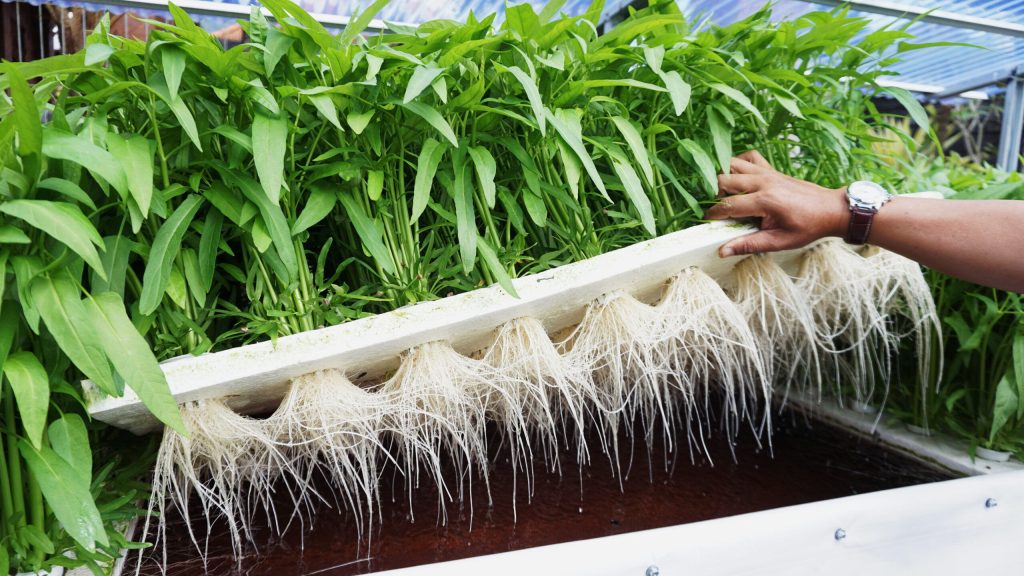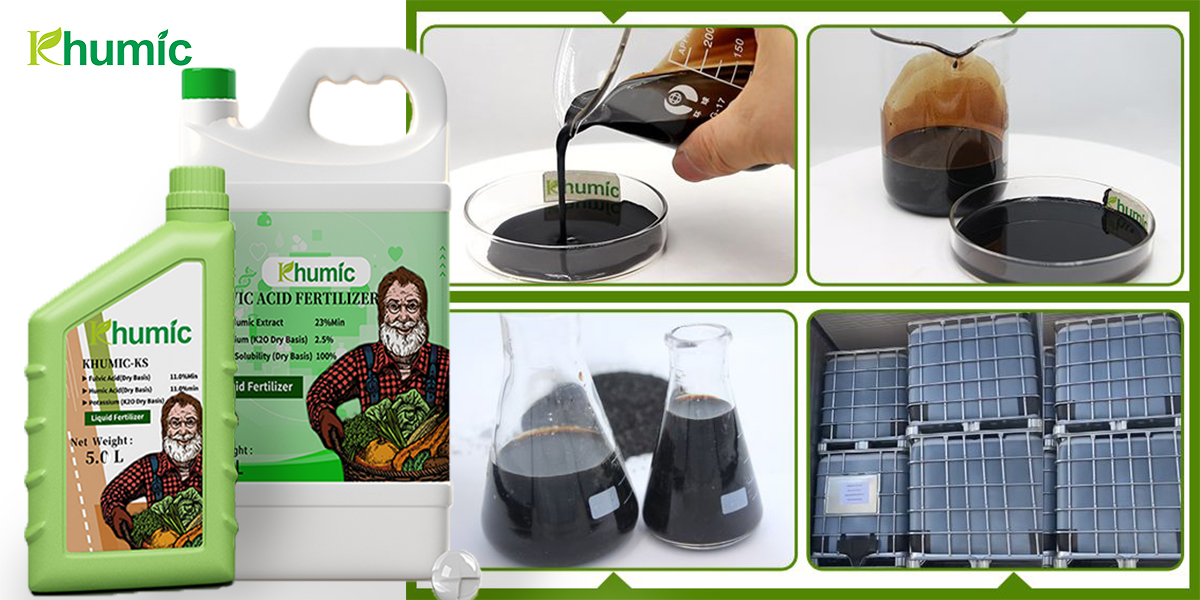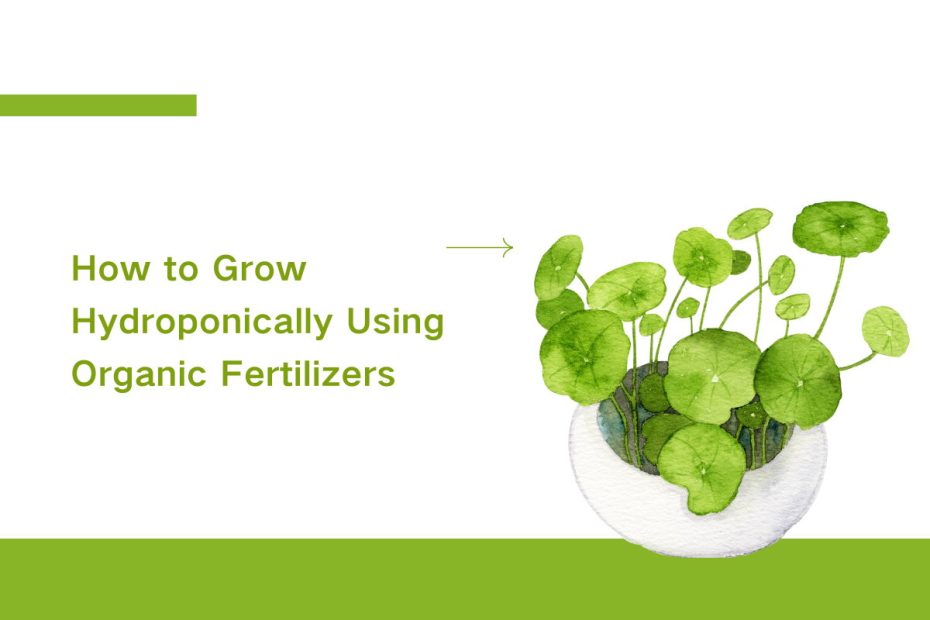Introduction
Agriculture With hydroponic gardening, growing fruits, vegetables, and herbs means you don’t have to worry about seasonality! A hydroponic setup is like a high-tech, soilless garden where plants thrive in a nutrient-rich water solution. However, in hydroponic gardening, the use of organic fertilizers is crucial! Using an organic fertilizer solution, promote healthier plant growth by incorporating organic nutrients into your hydroponic system using an organic fertilizer solution. In this article, create a harmonious environment for your plants to thrive by learning how to grow hydroponically using organic fertilizers.
Table of Contents
What is Hydroponics
Hydroponics is a technique for growing plants without soil and comes in many forms, including deep water culture (DWC), nutrient film technology (NFT), and tidal systems. It simply requires soaking the plant’s roots in nutrient-rich water or using materials that support the plant’s roots, such as perlite, gravel, wood fiber, sand, and foam. Because it can be grown indoors and does not require soil, it is also called soilless cultivation. Perfect for those on a budget and with limited space.
Plants grown hydroponically include tomatoes, peppers, spinach, lettuce, melons, cucumbers, strawberries, lettuce, and solanaceous vegetables for commercial purposes, as well as Arabidopsis thaliana as a model organism in plant science and genetics.

Cite Sources: https://en.wikipedia.org/wiki/Hydroponics
Tips on How to Grow Hydroponically Using Organic Fertilizers
Common organic fertilizers for hydroponics include fish emulsion, seaweed extract, compost tea, humic acid, etc. These natural sources of nutrients enrich the nutrient solution and promote healthy plant growth. However, organic fertilizers need to be diluted according to the manufacturer’s instructions when used in hydroponic systems to avoid nutrient imbalances and potential damage to plants.
Choose the Right Type of Organic Fertilizer
Common organic fertilizers for hydroponics include fish emulsion, seaweed extract, compost tea, humic acid, etc. These natural sources of nutrients enrich the nutrient solution and promote healthy plant growth.
1. Compost Tea
Compost tea is a liquid fertilizer made from compost and beneficial microorganisms. It is rich in beneficial microbiota and nutrients, promoting nutrient recycling, and making it an excellent choice for hydroponic plants.
2. Fish emulsion
Fish emulsions are concentrated liquid fertilizers made from fish by-products. It is a quick-release fertilizer that provides plants with essential nutrients such as nitrogen and phosphorus.
3. Worm fertilizer
Worm fertilizer, also known as vermicompost, is rich in organic matter and beneficial microorganisms. They improve soil structure and promote plant growth in hydroponic systems.
4. Seaweed extract
The presence of auxins, cytokinins, and gibberellins in seaweed extract is a natural source of essential nutrients such as nitrogen, phosphorus, potassium, and trace minerals that promote plant growth, yield, and root development. and have properties that repel or deter pests and diseases, thereby reducing the need for chemical pesticides in hydroponic setups.
5. Humic acid
KHUNIC Humic Acid is fully soluble in water, stimulating beneficial microbial activity and helping to buffer pH levels in hydroponic systems. By adding humic acid to your hydroponic system you add valuable organic matter that enriches the growing medium and supports long-term plant development.
Essential Nutrients for Hydroponic Plants
Hydroponic plants require large amounts of the macronutrients nitrogen, phosphorus, and potassium (indicated by the NPK ratio on the fertilizer label) and small amounts of iron, manganese, and zinc. Organic fertilizers typically contain a balanced combination of macronutrients and micronutrients to meet the needs of your plants.
Test nutrient levels in your hydroponic system regularly to prevent nutrient deficiencies or excesses from damaging your plants. Adjust the nutrient solution as needed to ensure your plants are getting enough nutrients.Organic Fertilizer Application Time
In a hydroponic system, organic fertilizers can be applied at specific stages of plant growth to ensure optimal nutrient uptake and growth. For example: Apply organic fertilizer during the early stages of vigorous plant growth and root development to support the plant’s nutrient needs during this critical growth stage. Apply organic fertilizer during the flowering or fruiting stage to increase crop yields and fruit enlargement. It is important to follow the manufacturer’s instructions and consider the specific nutritional needs of the growing plants to determine the best time to apply organic fertilizer in a hydroponic system.

Preventing and Managing Nutritional Deficiencies
Nutritional deficiencies can manifest as yellowing of leaves, stunted growth, rolled leaves, or poor flowering. Common deficiencies include nitrogen, potassium, iron, etc., which can be corrected by adjusting the nutrient solution or supplementing with specific nutrients.
Commonly used organic treatments include foliar sprays, compost tea, and naturally sourced nutritional supplements. These solutions provide plants with essential nutrients in a ready-made form, supporting rapid recovery and growth.Monitor and Adjust PH
pH levels affect nutrient availability to plants, while electrical conductivity (EC) measures nutrient concentration in a solution. A stable pH range (usually 5.5-6.5) helps prevent nutrient imbalances and promotes optimal nutrient absorption. Maintaining optimal pH and EC levels ensures efficient nutrient uptake and healthy plant growth.

Organic Pest Control
Natural Ways to Control Hydroponic Pests
Integrated pest management techniques such as introducing beneficial insects, using neem oil and practicing crop rotation can help control pests without using harmful chemicals. These natural solutions protect plants while maintaining a healthy environment.
Preventing Disease in Hydroponic Environments
Maintain proper hygiene and hygiene in your hydroponic setup to prevent the spread of disease. Avoid overwatering, provide adequate airflow, and monitor plant health to minimize the risk of fungal or bacterial infection.
Using organic solutions for pest management
Organic fungicides, insecticidal soaps, and biological control agents provide effective solutions for hydroponic pest control. These eco-friendly alternatives protect plants without leaving harmful residue or harming plant health.
Temperature and Humidity Control in Hydroponic Setups
Maintain a stable temperature and humidity in your hydroponic environment to support plant growth and prevent stress. Use fans, heaters or humidifiers as needed to create the best-growing climate for your plants.
Choose appropriate lighting fixtures, such as LED or fluorescent lamps, to provide sufficient light intensity and spectrum for plant photosynthesis. Adjust light timing and distance to meet plant needs and promote healthy growth.
Make sure there is adequate airflow and ventilation in your hydroponic setup to prevent moisture buildup, mold growth, and stagnant air pockets. Proper circulation promotes gas exchange, prevents disease, and enhances plant transpiration.
Conclusion
Incorporating organic fertilizers into hydroponic gardening practices provides a natural and sustainable solution for nourishing hydroponic plants and promoting strong growth and yields. KHUMIC develops various humic acid/fulvic acid organic fertilizers, which are completely water-soluble and suitable for hydroponics and soil use. By understanding its benefits and implementing best application practices, you can cultivate lush plants and enjoy a bountiful harvest.
Recommended related reading:
FAQs
Can I use homemade compost as an organic fertilizer for hydroponics?
Yes, homemade compost can be a great organic fertilizer for hydroponic plants. Just make sure it’s well composted to avoid introducing pathogens or pests into your hydroponic system.
How often should I feed my hydroponic plants with organic fertilizer?
The frequency of fertilizing depends on the specific needs of the plant and the type of organic fertilizer used. Monitor plant growth and nutrient levels to determine the best fertilization schedule.
Is organic fertilizer for hydroponic gardening more expensive than synthetic fertilizer?
While the initial cost of organic fertilizers may be higher than synthetic fertilizers, the long-term benefits in plant health, environmental sustainability, and soil fertility often outweigh the price difference.
Can I mix different types of organic fertilizers in a hydroponic system?
Different types of organic fertilizers can be mixed to provide plants with a wider range of nutrients. However, be alert to potential nutrient imbalances and monitor the plant’s response to the fertilizer mix.
How do I ensure organic fertilizers don’t clog my hydroponic system?
To prevent clogging, use finely filtered organic fertilizer or add a filtration system to your hydroponic setup. Regular maintenance and cleaning of your system can also help prevent blockages and ensure optimal nutrients are provided to your plants.
